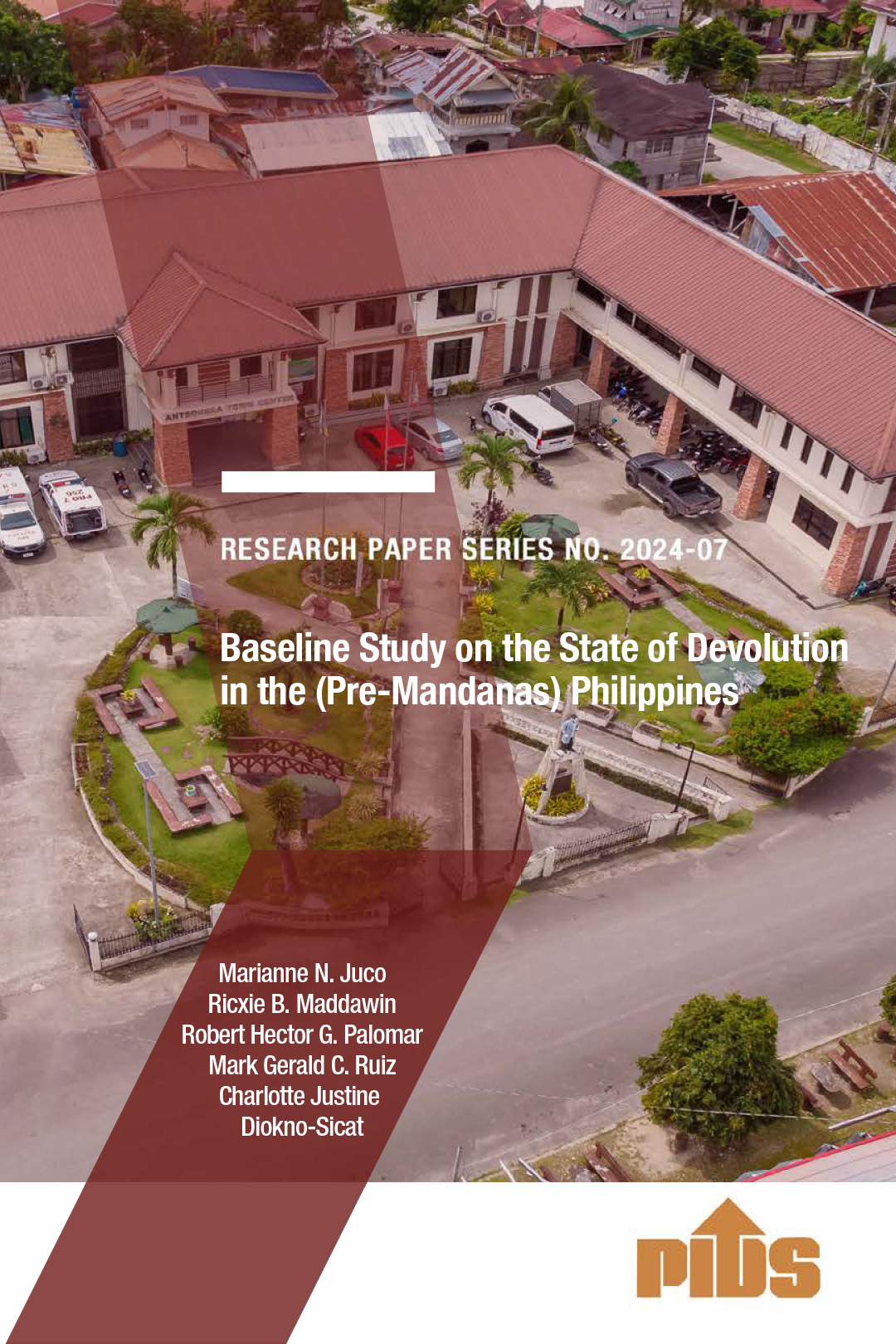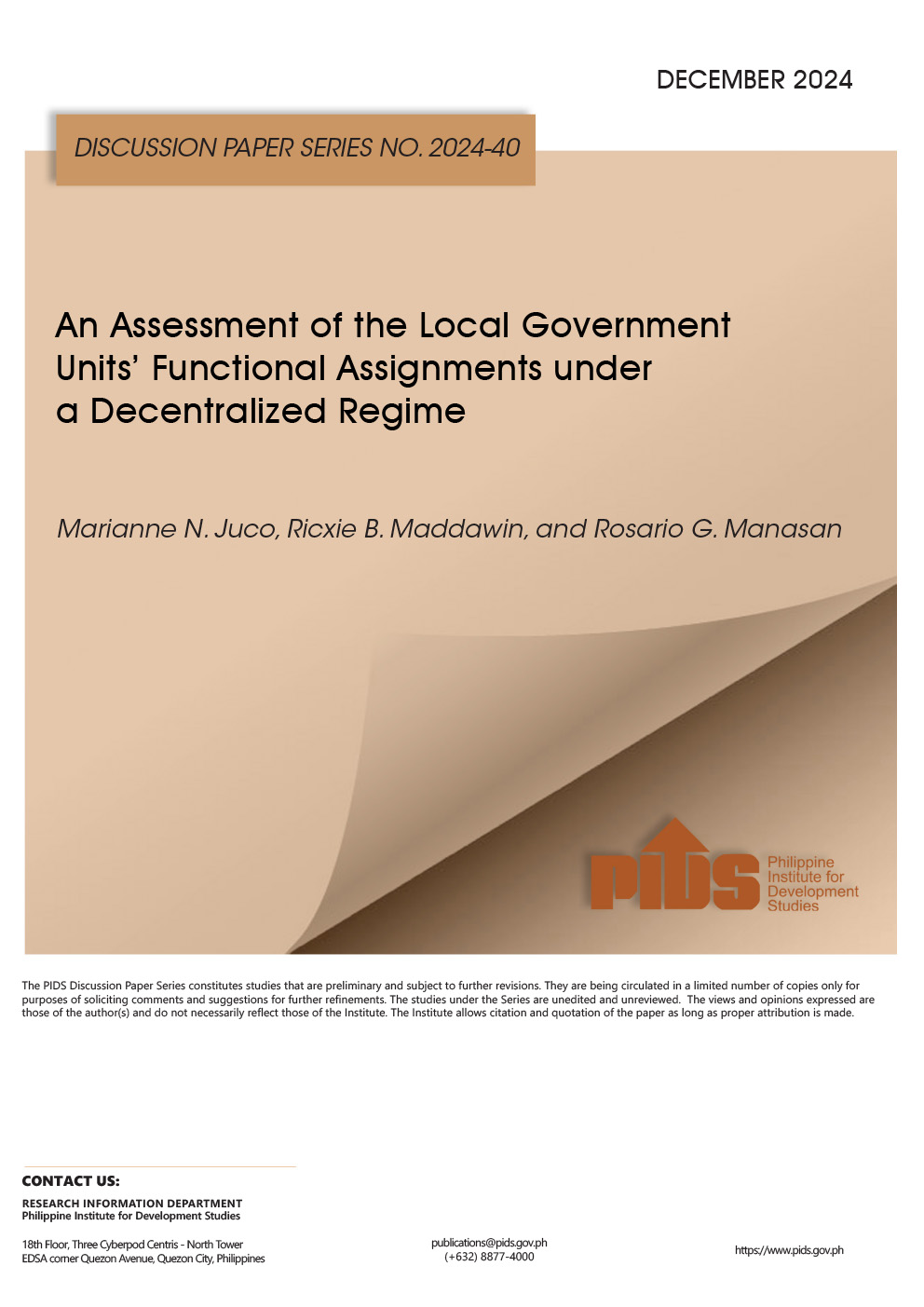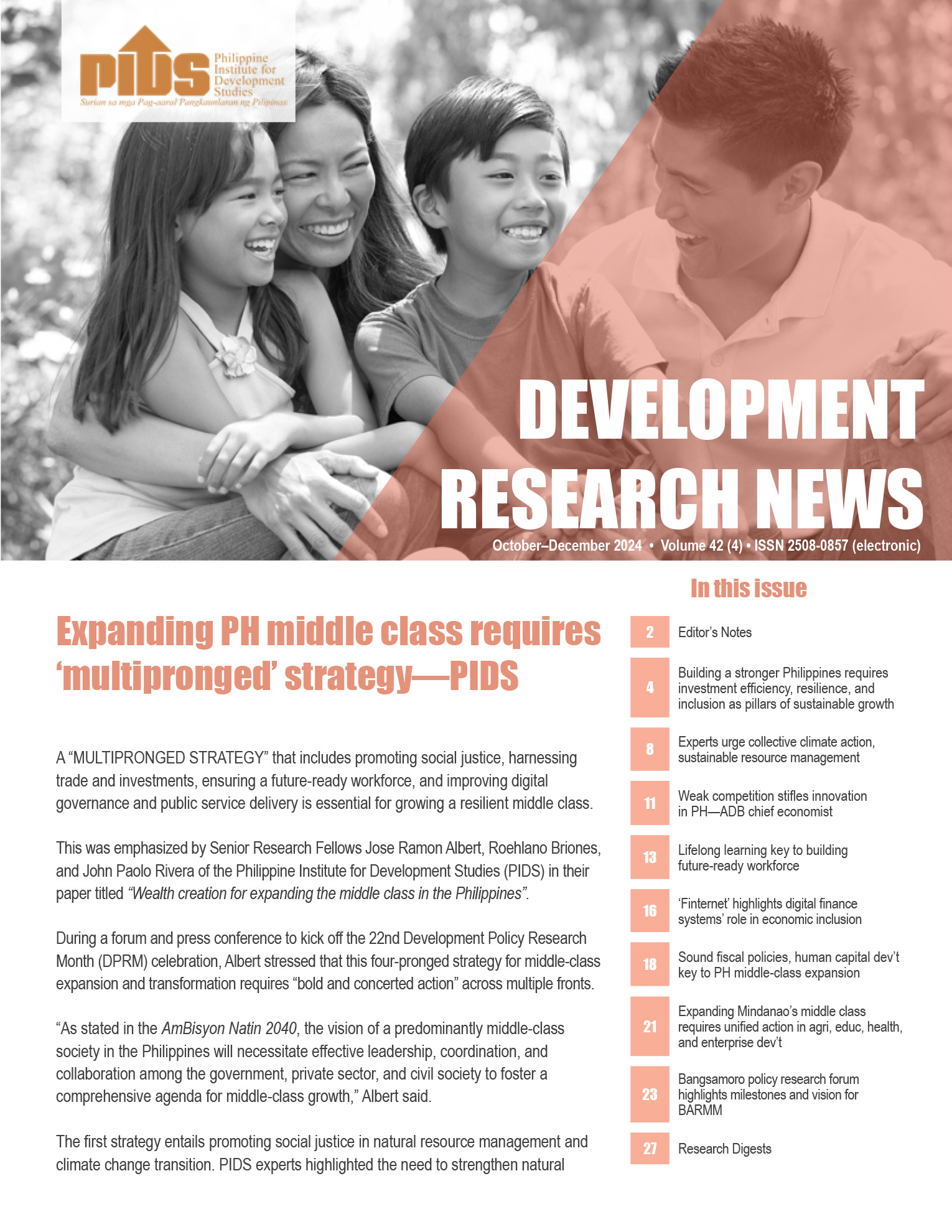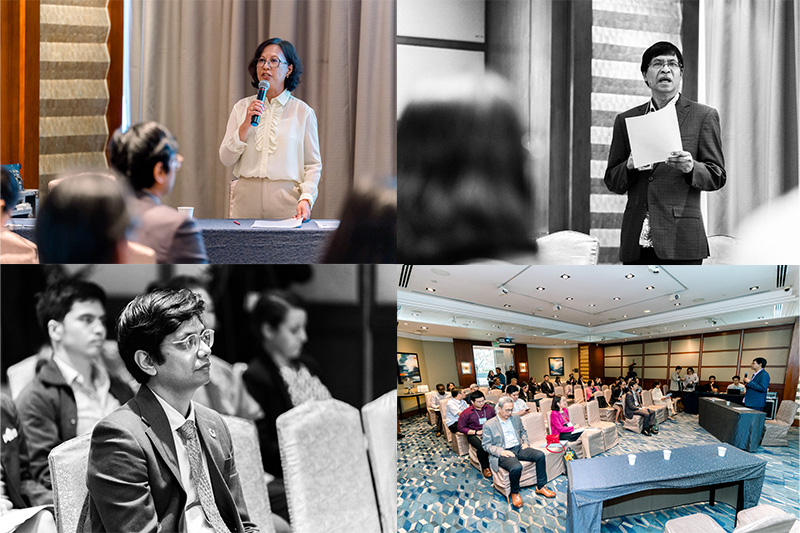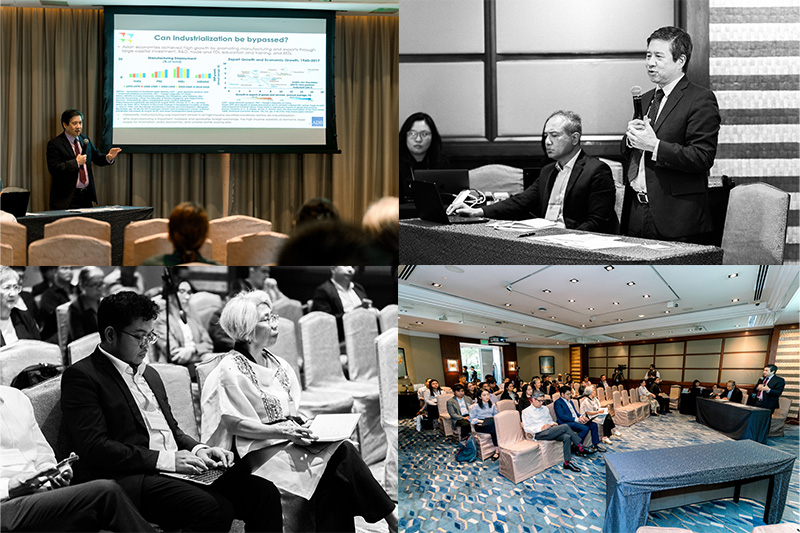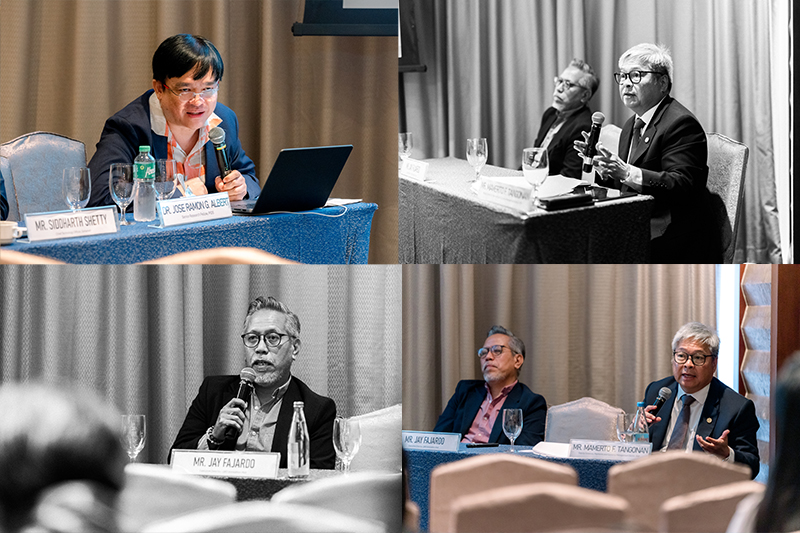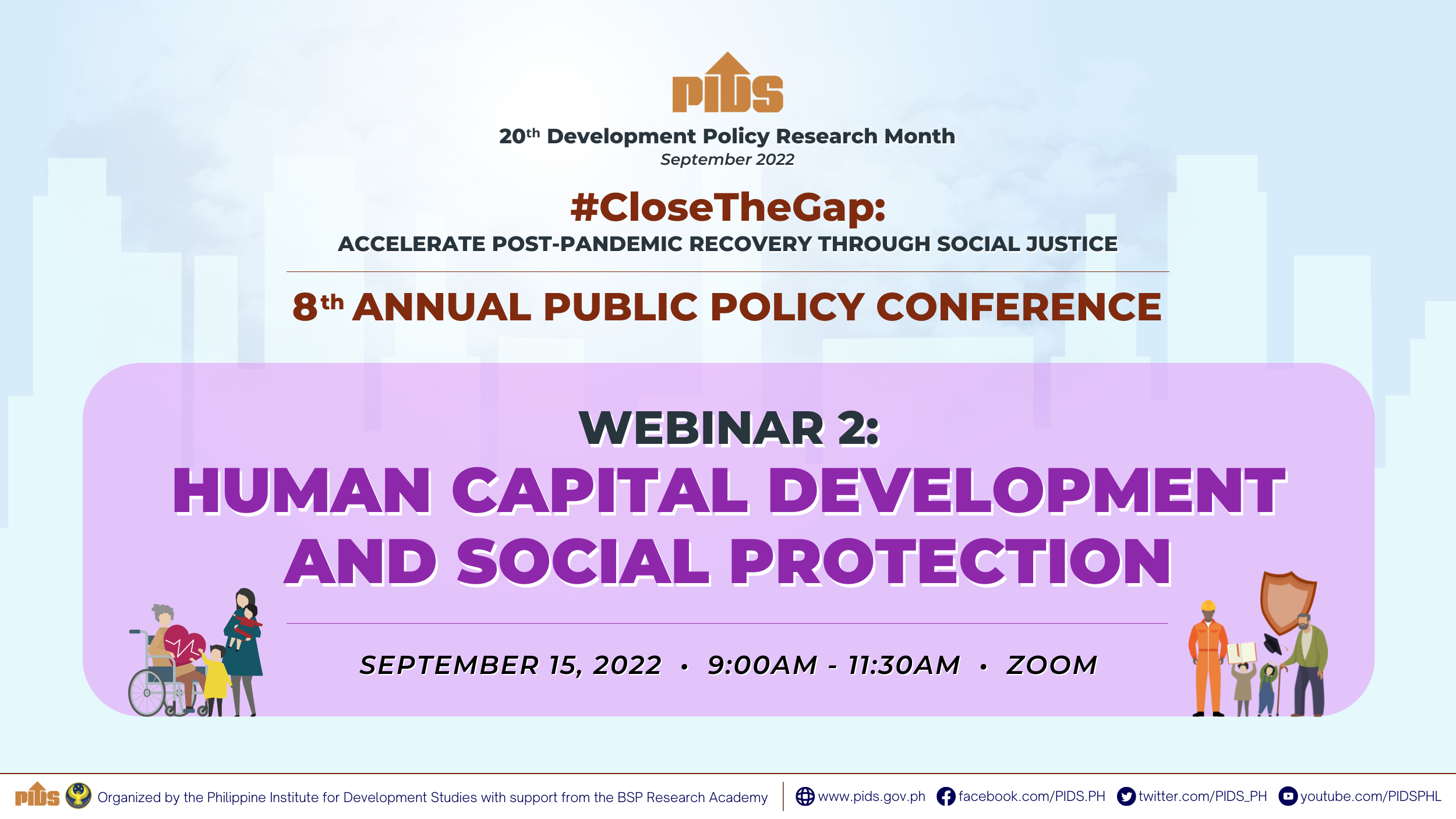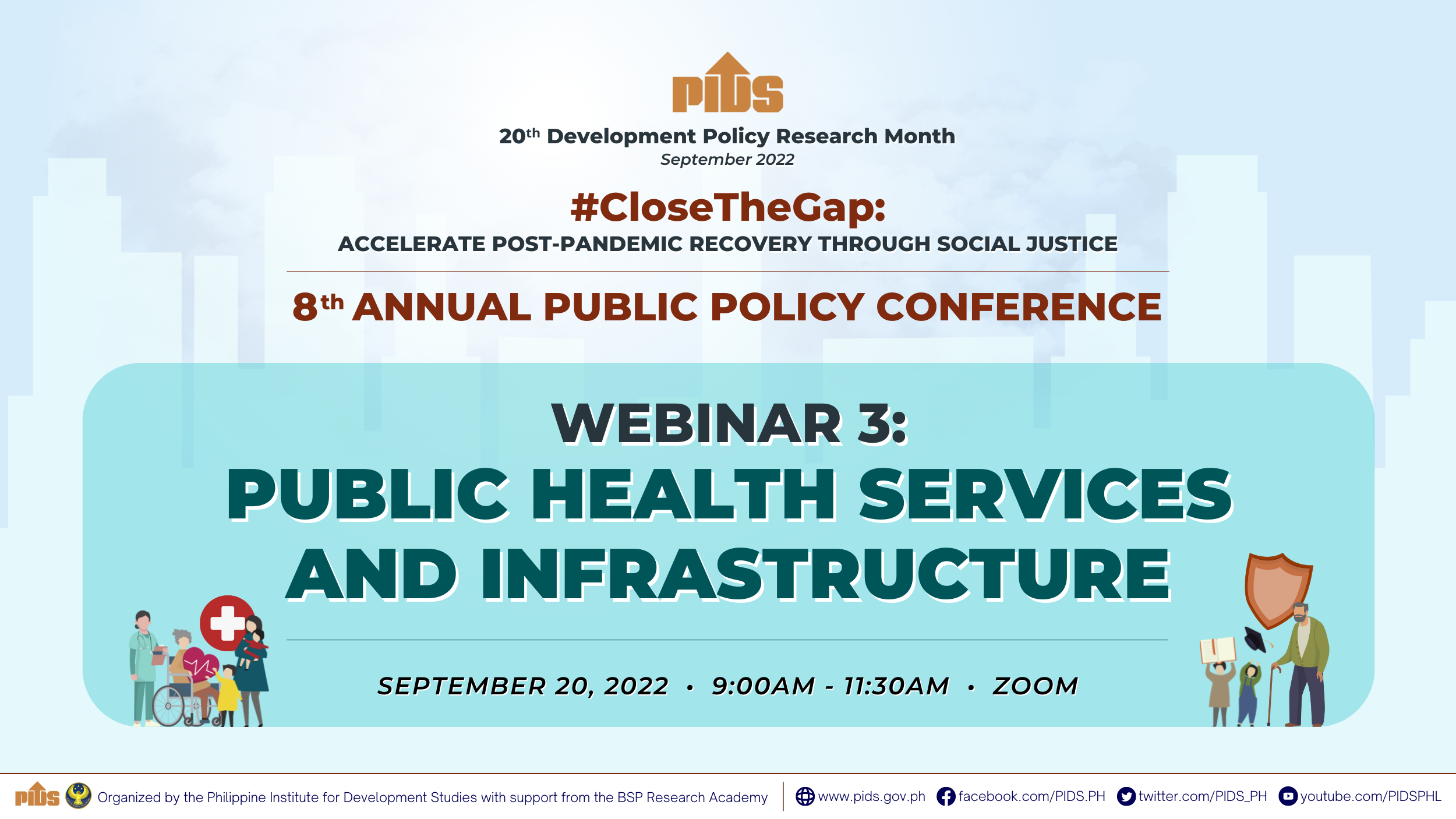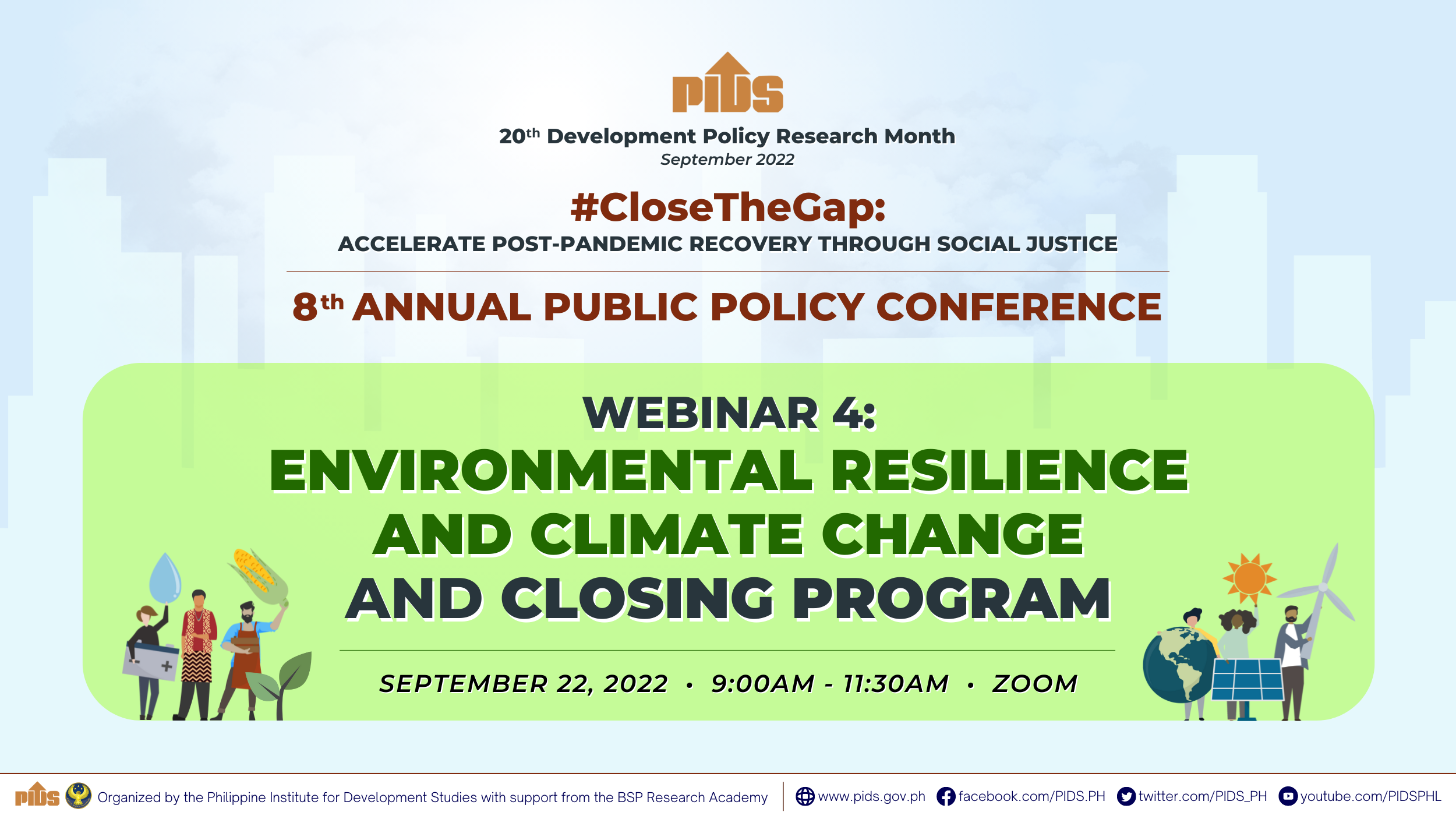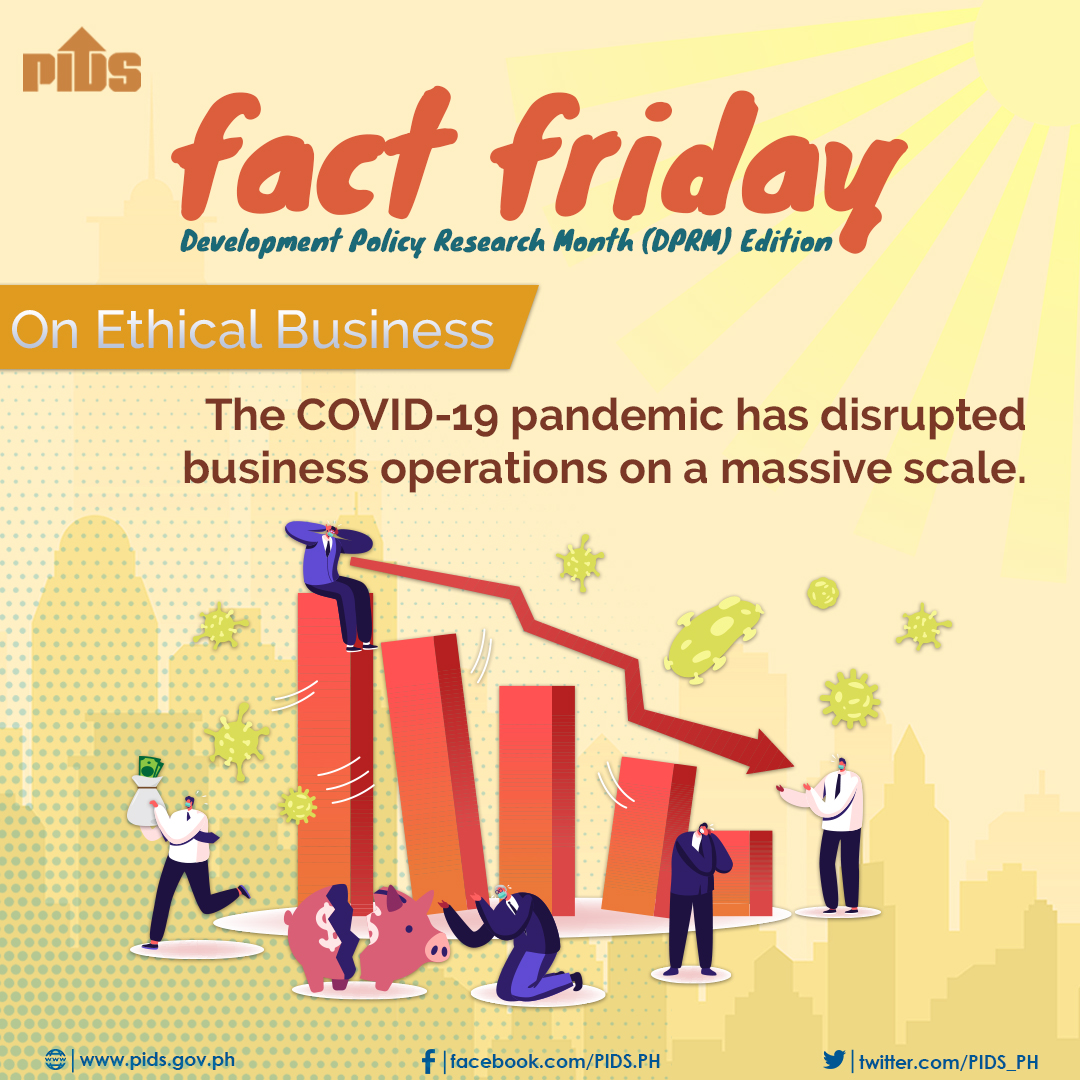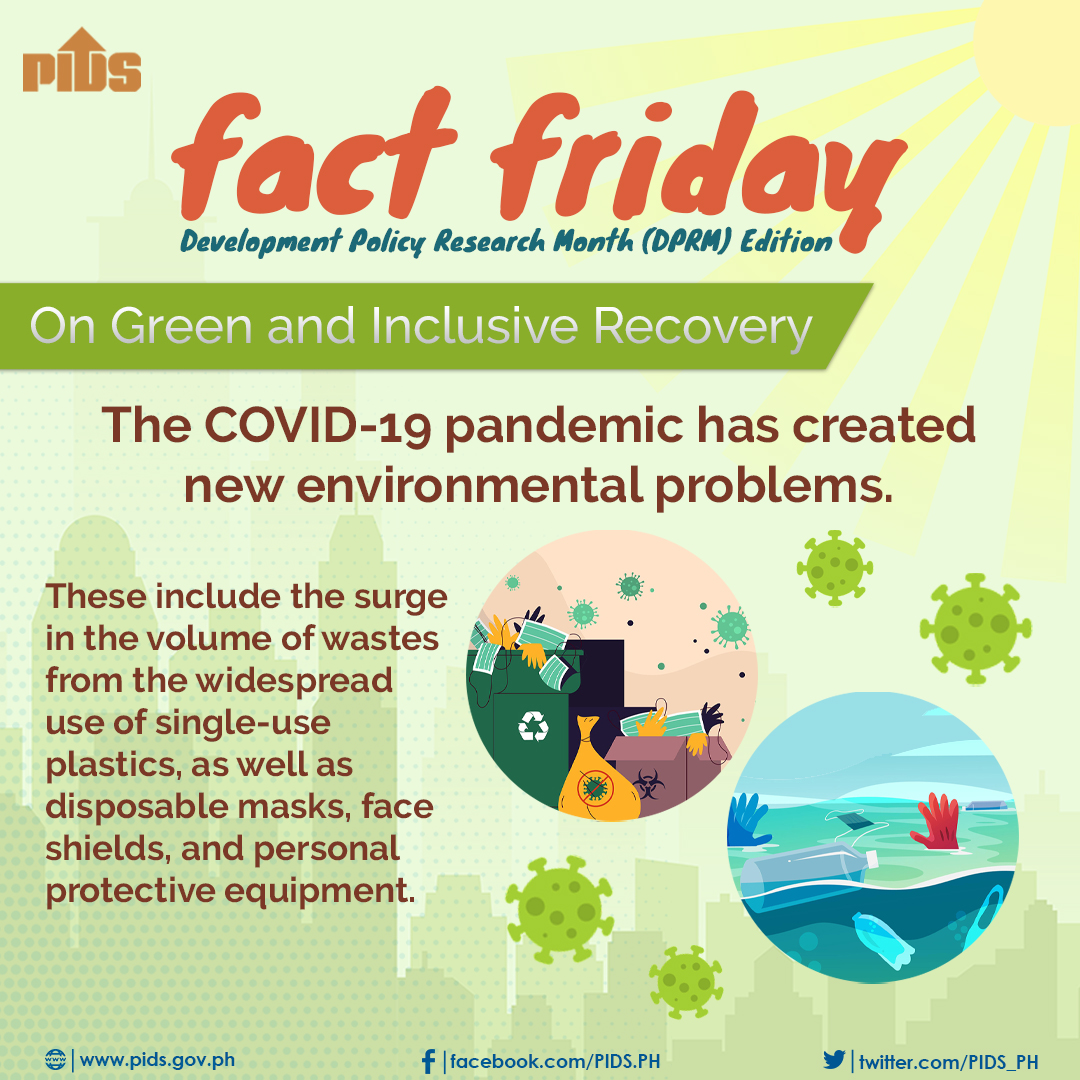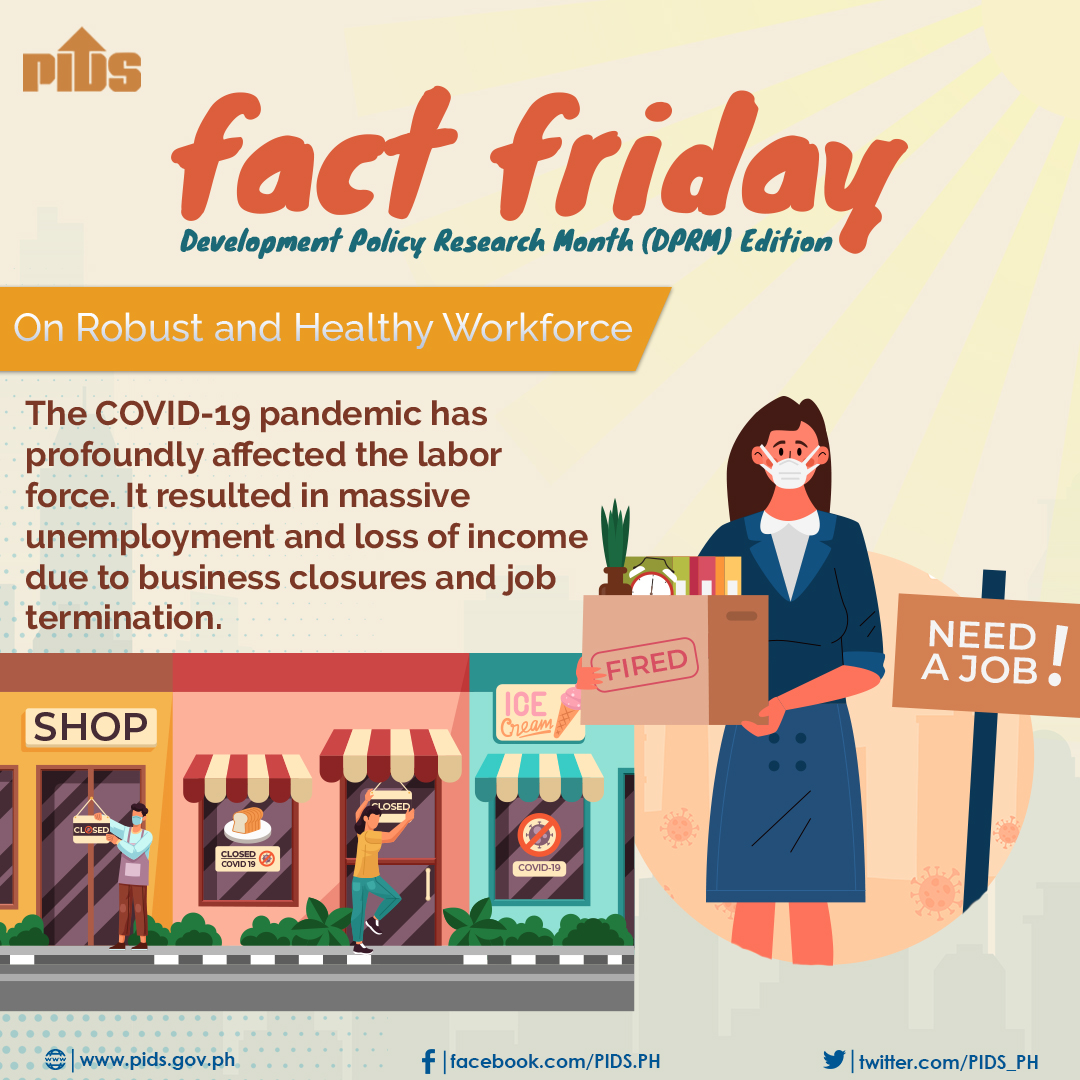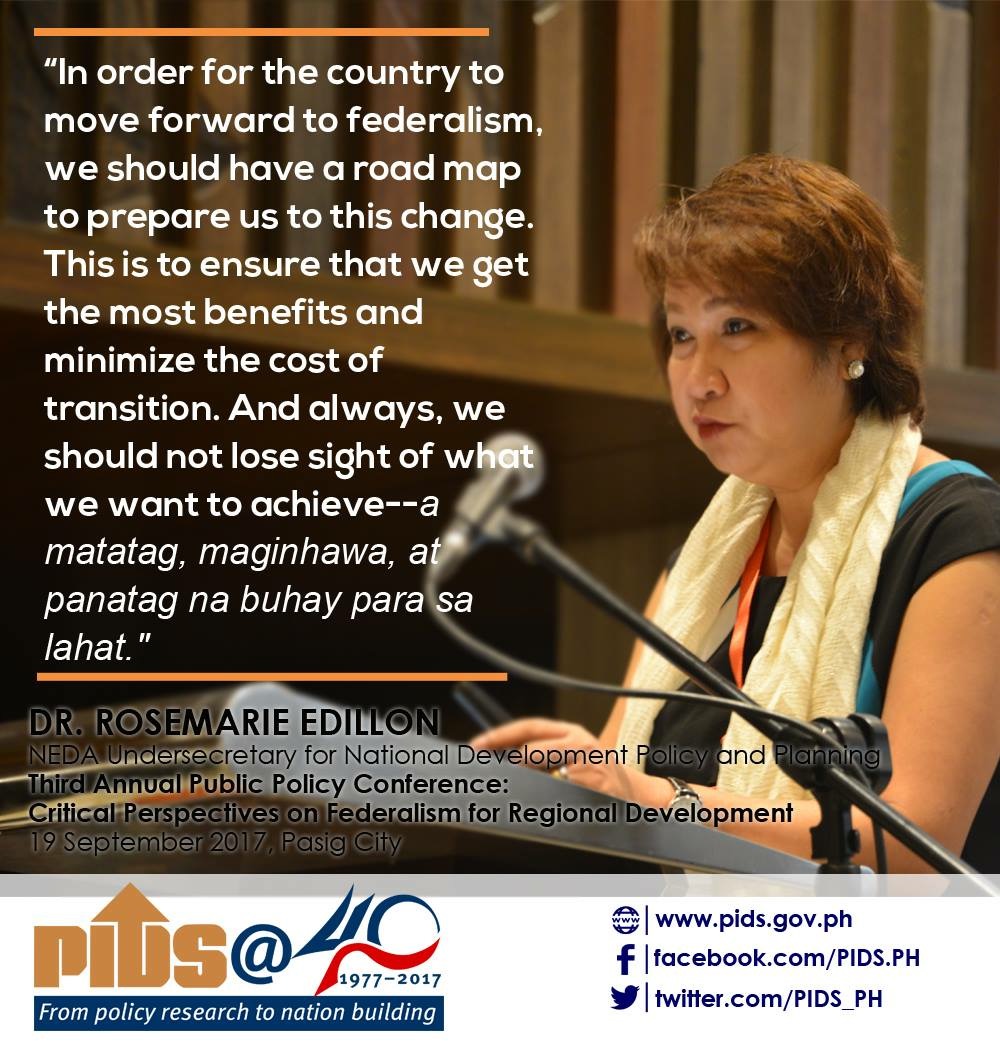
Policymakers should see merit in examining whether federalism can indeed address the sociopolitical and economic problems that hamper the country’s growth.
This was the message of Dr. Gilberto Llanto, president of state think tank Philippine Institute for Development Studies (PIDS), as he opened the Third Annual Public Policy Conference (APPC). With the theme, “Critical Perspectives on Federalism for Regional Development”, this year’s APPC focused on the major issues surrounding the proposal for the country’s shift to a federal form of government.
Through the said event, Llanto said PIDS endeavors to contribute to an “intelligent policy discourse” on federalism crucial to help the public and policymakers make an informed decision.
The conference covered key issues on federalism, such as its political feasibility in the Philippines, the form and fiscal design of a federal government, as well as the implications of federalism given the country’s political, economic, social, and historical contexts.
Decentralization ‘not fully realized’
According to Llanto, behind the current calls for a shift to a federal form is the frustration of some Filipinos, especially those living in the Visayas and Mindanao, on the concentration of both political and economic powers in Manila. Such concentration of power since the Spanish period in the Philippines has allegedly resulted to the uneven development in the country today.
Despite the passage of the Local Government Code, however, “genuine decentralization has not been fully realized,” he explained. In fact, several PIDS studies, according to Llanto, reveal that local governments continue to face various challenges in their exercise of functions, primarily because of the imbalance in resource-generation capacities between them and the national government.
“Those who support a federalist structure of government maintains that it is the best way to address rooted political and economic problems, especially poverty and the separatist movement in the countryside,” he added.
However, Llanto urged its supporters to clarify the policy discourse on federalism given that “there is not only one model of federalism that countries with a federal structure of government have followed.”
“It can be assumed that the federal states that we have today had agreed to adopt a particular federalist structure that would best address their deeply-cherished goals, challenges, and experience,” he added.
‘Lots of questions’ for federalism
For her part, National Economic and Development Authority (NEDA) Undersecretary Rosemarie Edillon stressed that federalism advocates still have “lots of questions” to address regarding the structure of a federal form of government in the country.
In terms of public management, for instance, Edillon cited her own experience navigating Metro Manila every day, where each political unit is implementing a totally different approach to manage traffic in its locality. Apparently, such setup seems ineffective as “it takes more than two hours to traverse this 14 km distance”.
“Obviously, for some services, states would have to acquiesce to some form of central rule,” she explained.
According to Edillon, the central structure also applies in funds transfer to the lesser developed states. Under the intended federal form of government in the Philippines, the NEDA official claimed the MIMAROPA region would be the “worst-off” given its population of less than three million, spread over five island provinces. Clearly, the said region cannot rely on its own resources to spur its development.
As such, “there will be a great need for funds transfer from the central pool going especially to the least developed states,” such as MIMAROPA, she added.
Edillon also raised concerns with regard the possible implication of the fiscal independence of the states under a federal form. While some states might offer the “sweetest” incentives to attract investments in their locality, she argued others might take advantage of the function to “impose more regulations, thus increasing the cost of doing business” in the country.
Aside from fiscal and public management issues, she also urged the policymakers to examine whether the country has enough human capital at the highly technical level of governance that can be deployed to the different states.
Current ‘states’ in PH ‘least developed’
Meanwhile, Dr. Alfredo Pascual, a member of the PIDS Board of Trustees, questioned the capability of a federal form of government to usher regional development given the country’s experience in developing state-like political units.
According to Pascual, the Philippines already has two existing autonomous regions, which can be considered as states within the Philippines, the Autonomous Region of Muslim Mindanao and the Cordillera Administrative Region.
“We have seen the chart. Where are they? [They are] the least developed among all the regions in the country,” he explained.
Pascual also quizzed the proposals to “chop up the country”, wherein the “current move now is toward consolidation”.
“What we actually need is a stronger centralized capability and, through the use of technology, to reach all corners of the country,” he explained.
Pascual also clarified that regional economic development is not achieved through political means, such as federalism, but through economic and technological solutions.
He explained the 10-point socioeconomic agenda of the Duterte administration already contains a number of plans that can actually strengthen regional development, such as human capital development and the promotion of agricultural value chain development.
The former president of the University of the Philippines likewise urged the policymakers to strengthen state universities and colleges, which will serve as “knowledge hubs” of regions. The said hubs will then support the growth of the existing regions and will be the main beneficiaries of the regional development councils.
Nonetheless, Pascual said federalism is worth looking into if it can help solve the pestering political problems in the country, such as political dynasties, weak political system, and the indefinitive results of its electoral process.
Still, he urged the policymakers to define the brand of federalism that the country will adopt. He also encouraged them to consider other issues on federalism, such as its impacts on business and investments, political structures, national identity, and languages.
‘7 in 10 participants thumbed down fed’
At the end of the conference, more than seven in every 10 participants disagreed that federalism is a necessary condition to ensure the growth of the country, according to a survey initiated by former NEDA director-general Solita “Winnie” Monsod who was present at the event.
In his closing remarks, Pascual said that the participants were asked to join an earlier poll on the question, “Given what you know about the Philippine condition and what you have learned about federalism, is federalism a necessary condition for Philippine sustainable growth and development?”
The survey revealed that only 28 of out the 101 participants gave a thumbs up on federalism. Meanwhile, two participants chose to abstain.
“I think we need to hear more persuasive advocates of federalism to turn the numbers,” Pascual said.
The APPC serves as the culminating activity of the Development Policy Research Month (DPRM), an annual nationwide celebration led by PIDS every September pursuant to Presidential Proclamation No. 247.
Started in 2015, the APPC aims to convene policy experts and researchers to analyze critical issues relevant to development planning and policymaking. PIDS envisions it to serve as a platform to cultivate a strong culture of research and use of data and evidence among the country's national and local decisionmakers in policymaking and program planning. Through the different topics highlighted in every DPRM celebration, this event also aims to raise the public's literacy of important socioeconomic issues.
This was the message of Dr. Gilberto Llanto, president of state think tank Philippine Institute for Development Studies (PIDS), as he opened the Third Annual Public Policy Conference (APPC). With the theme, “Critical Perspectives on Federalism for Regional Development”, this year’s APPC focused on the major issues surrounding the proposal for the country’s shift to a federal form of government.
Through the said event, Llanto said PIDS endeavors to contribute to an “intelligent policy discourse” on federalism crucial to help the public and policymakers make an informed decision.
The conference covered key issues on federalism, such as its political feasibility in the Philippines, the form and fiscal design of a federal government, as well as the implications of federalism given the country’s political, economic, social, and historical contexts.
Decentralization ‘not fully realized’
According to Llanto, behind the current calls for a shift to a federal form is the frustration of some Filipinos, especially those living in the Visayas and Mindanao, on the concentration of both political and economic powers in Manila. Such concentration of power since the Spanish period in the Philippines has allegedly resulted to the uneven development in the country today.
Despite the passage of the Local Government Code, however, “genuine decentralization has not been fully realized,” he explained. In fact, several PIDS studies, according to Llanto, reveal that local governments continue to face various challenges in their exercise of functions, primarily because of the imbalance in resource-generation capacities between them and the national government.
“Those who support a federalist structure of government maintains that it is the best way to address rooted political and economic problems, especially poverty and the separatist movement in the countryside,” he added.
However, Llanto urged its supporters to clarify the policy discourse on federalism given that “there is not only one model of federalism that countries with a federal structure of government have followed.”
“It can be assumed that the federal states that we have today had agreed to adopt a particular federalist structure that would best address their deeply-cherished goals, challenges, and experience,” he added.
‘Lots of questions’ for federalism
For her part, National Economic and Development Authority (NEDA) Undersecretary Rosemarie Edillon stressed that federalism advocates still have “lots of questions” to address regarding the structure of a federal form of government in the country.
In terms of public management, for instance, Edillon cited her own experience navigating Metro Manila every day, where each political unit is implementing a totally different approach to manage traffic in its locality. Apparently, such setup seems ineffective as “it takes more than two hours to traverse this 14 km distance”.
“Obviously, for some services, states would have to acquiesce to some form of central rule,” she explained.
According to Edillon, the central structure also applies in funds transfer to the lesser developed states. Under the intended federal form of government in the Philippines, the NEDA official claimed the MIMAROPA region would be the “worst-off” given its population of less than three million, spread over five island provinces. Clearly, the said region cannot rely on its own resources to spur its development.
As such, “there will be a great need for funds transfer from the central pool going especially to the least developed states,” such as MIMAROPA, she added.
Edillon also raised concerns with regard the possible implication of the fiscal independence of the states under a federal form. While some states might offer the “sweetest” incentives to attract investments in their locality, she argued others might take advantage of the function to “impose more regulations, thus increasing the cost of doing business” in the country.
Aside from fiscal and public management issues, she also urged the policymakers to examine whether the country has enough human capital at the highly technical level of governance that can be deployed to the different states.
Current ‘states’ in PH ‘least developed’
Meanwhile, Dr. Alfredo Pascual, a member of the PIDS Board of Trustees, questioned the capability of a federal form of government to usher regional development given the country’s experience in developing state-like political units.
According to Pascual, the Philippines already has two existing autonomous regions, which can be considered as states within the Philippines, the Autonomous Region of Muslim Mindanao and the Cordillera Administrative Region.
“We have seen the chart. Where are they? [They are] the least developed among all the regions in the country,” he explained.
Pascual also quizzed the proposals to “chop up the country”, wherein the “current move now is toward consolidation”.
“What we actually need is a stronger centralized capability and, through the use of technology, to reach all corners of the country,” he explained.
Pascual also clarified that regional economic development is not achieved through political means, such as federalism, but through economic and technological solutions.
He explained the 10-point socioeconomic agenda of the Duterte administration already contains a number of plans that can actually strengthen regional development, such as human capital development and the promotion of agricultural value chain development.
The former president of the University of the Philippines likewise urged the policymakers to strengthen state universities and colleges, which will serve as “knowledge hubs” of regions. The said hubs will then support the growth of the existing regions and will be the main beneficiaries of the regional development councils.
Nonetheless, Pascual said federalism is worth looking into if it can help solve the pestering political problems in the country, such as political dynasties, weak political system, and the indefinitive results of its electoral process.
Still, he urged the policymakers to define the brand of federalism that the country will adopt. He also encouraged them to consider other issues on federalism, such as its impacts on business and investments, political structures, national identity, and languages.
‘7 in 10 participants thumbed down fed’
At the end of the conference, more than seven in every 10 participants disagreed that federalism is a necessary condition to ensure the growth of the country, according to a survey initiated by former NEDA director-general Solita “Winnie” Monsod who was present at the event.
In his closing remarks, Pascual said that the participants were asked to join an earlier poll on the question, “Given what you know about the Philippine condition and what you have learned about federalism, is federalism a necessary condition for Philippine sustainable growth and development?”
The survey revealed that only 28 of out the 101 participants gave a thumbs up on federalism. Meanwhile, two participants chose to abstain.
“I think we need to hear more persuasive advocates of federalism to turn the numbers,” Pascual said.
The APPC serves as the culminating activity of the Development Policy Research Month (DPRM), an annual nationwide celebration led by PIDS every September pursuant to Presidential Proclamation No. 247.
Started in 2015, the APPC aims to convene policy experts and researchers to analyze critical issues relevant to development planning and policymaking. PIDS envisions it to serve as a platform to cultivate a strong culture of research and use of data and evidence among the country's national and local decisionmakers in policymaking and program planning. Through the different topics highlighted in every DPRM celebration, this event also aims to raise the public's literacy of important socioeconomic issues.

